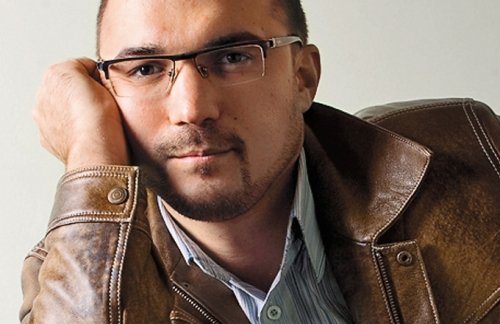Should we, and do we need to? Recently, this question has been asked more and more frequently (one, two). The answer seems obvious — of course. But it turns out, not everyone agrees.
Many people think that discussing politics is nothing more than a kitchen argument along the lines of, "Who are you for, the reds or the whites?" "And what should I tell my kid? That those scumbags will ruin everything? That they’re traitors who will destroy the country and sell us into slavery? Is that what I should say?" an average person might ask.
Of course, children shouldn’t hear such things, but this isn’t a discussion about politics. First, it’s a monologue, not a dialogue. Second, it’s not about politics — it’s about emotions. Do you see the problem here?
People don’t understand what politics really is. They think it’s a chaotic force, something unpleasant, beyond their control, but something they can hide from. And they diligently teach their children to hide — like ostriches burying their heads in the sand.
Politics is a part of life. More than that, politics is the matrix of life, shaping the formulas for existence. Ignoring such a factor is, at the very least, irresponsible and, at times, criminal.
The problem is compounded by the fact that no one wants to admit they’re ignorant about politics. If you say, "You don’t understand what politics is," you’re likely to be dismissed outright. But people's behavior clearly shows that many truly don’t understand what lies behind the word.
Politics is the set of rules by which society operates. It’s about the sources of these rules, their legitimacy, and how we can influence them.
Talking to a child about politics means addressing topics like:
- What is a constitution, a law, a right, and civic responsibility?
- What are the differences between forms of government: republics, monarchies, dictatorships?
- What is legitimacy, and why do people obey kings and presidents?
- Why is an independent press important, and what is journalistic ethics?
- What is an independent judiciary, why is it essential, and what happens without it?
- Budgets: Where does the state get its money, why do we pay taxes, and how do taxes differ from criminal extortion?
- Elections, parliaments, and deputies: What are they, and why is voting so crucial?
- …and much more.
Politics directly shapes our daily lives and opportunities. Welfare, education, healthcare, security — all of these are products of politics. Should this be explained to children? Absolutely.
Ab-so-lu-te-ly
Of course, explanations must be age-appropriate and use relevant analogies from other fields of knowledge: physics (emergence), biology (social species), and chemistry (compatibility of elements). This helps children see how interconnected the world is and understand that every consequence has measurable and specific causes.
Talking to a child about politics isn’t just about discussing current events (though those should be explained too). It’s about teaching them how to think critically about these topics, establishing standards — how things should be, and why.
Wouldn’t it be amazing if we could explain these topics to our children effectively? But often, we can’t. Why? Because we don’t understand them ourselves.
It’s evident that not all adults are capable of thinking about politics critically. First, adults need someone to explain it to them. In search of answers, many turn to television, letting propaganda do its dirty work.
Instead of delving into the subject, reading, and striving for objectivity, it’s easier to replace understanding with a surrogate — "folk wisdom" or "common sense," shaped by uncritically chosen media that broadcast incessantly. And then everything becomes simple: the enemy is to blame; politics is a dirty business; engaging in politics means shouting slogans at rallies; the law is the law, no matter how unjust — you must obey; our president can’t be wrong; the authorities know best; who are you to think otherwise? What other "truths" were drilled into us as children?
So yes, we should talk to children about politics, but often there’s no one to do it.
What Can We Do?
-
Stop being a child yourself. Immaturity is unbecoming. Understand the scope of your civic responsibility and stop waiting for someone else to solve things for you, a 20/30/40-year-old adult.
-
Stop being ignorant. Start asking questions and searching for answers. Challenge your own beliefs. Read books — they’re primary sources of knowledge. Reflect on your media literacy — how developed is it? Critically assess your sources: review your subscriptions, speakers, and learn to fact-check information (if you don’t know what OSINT is, now is the time to find out).
-
Find the courage to ask, "What if I’m wrong?" and "How can this be verified?" Courage makes the first two points achievable. Without it, all efforts are in vain. Otherwise, tomorrow you’ll retreat back to your isolated life, quietly living out your days.
Talking about politics is essential. But before we start talking, we must start thinking.
Talk to children about politics so they have a chance at a future in this country.














